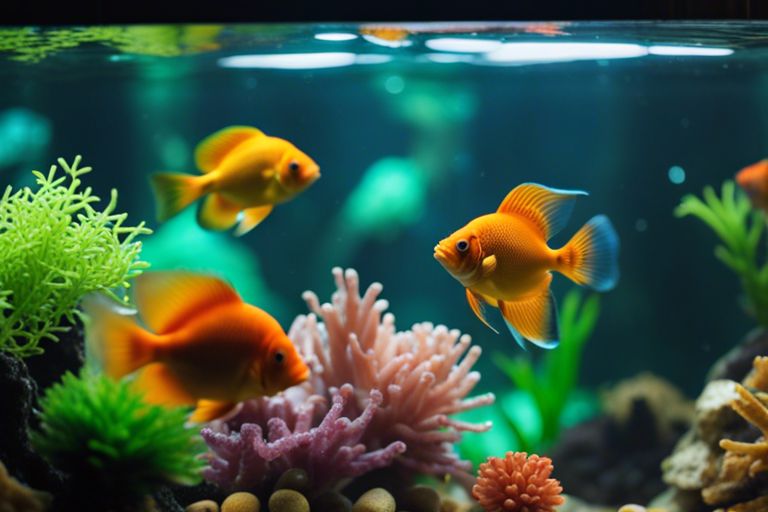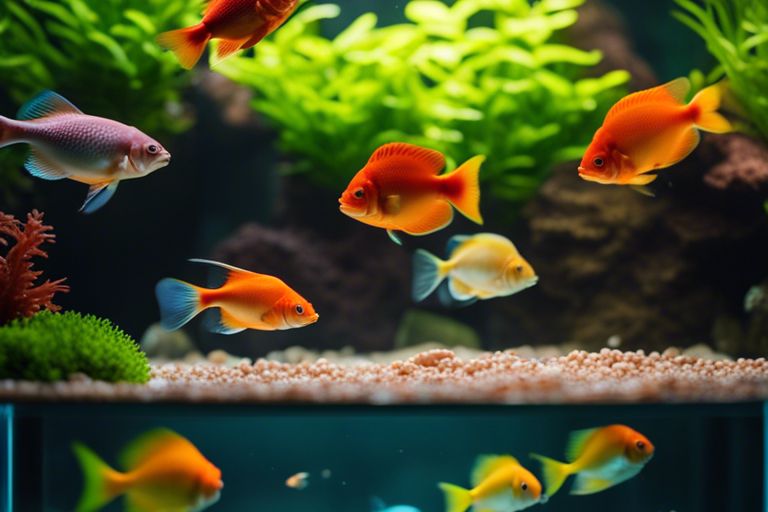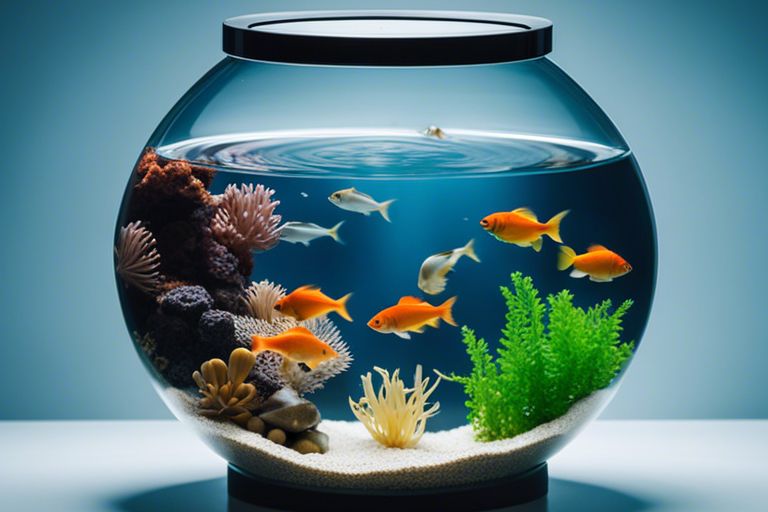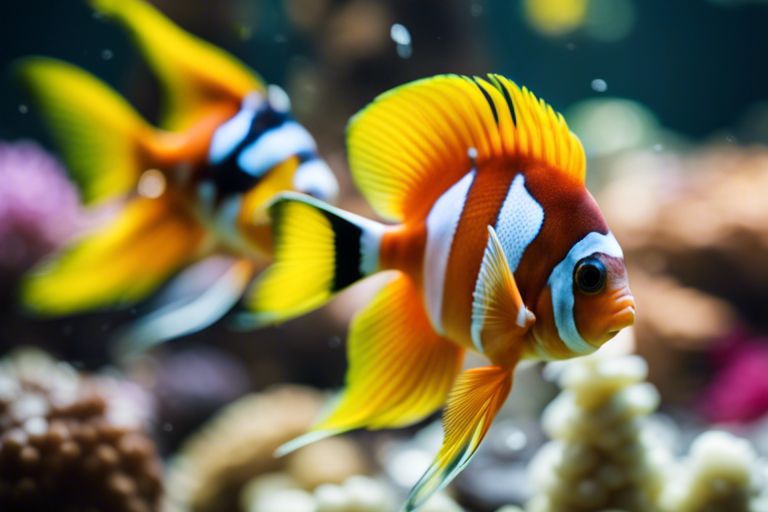Fish nutrition is a crucial aspect of keeping your aquatic pets healthy and thriving. Just like any other living creature, fish require a balanced and nutritious diet to ensure optimal health and well-being. In this blog post, we will probe into the importance of proper nutrition for your fish, exploring the key components of a healthy diet and how to feed your fish to promote their overall health. By understanding the dietary needs of your fish and providing them with the right nutrients, you can help them live a long and vibrant life in your aquarium.

Understanding Fish Nutritional Needs
Macronutrients: Proteins, Carbohydrates, and Fats
The foundation of a fish’s diet consists of macronutrients such as proteins, carbohydrates, and fats. Proteins are imperative for growth, tissue repair, and overall health of fish. Carbohydrates provide energy for daily activities, while fats are important for insulation, buoyancy, and the absorption of fat-soluble vitamins.
Micronutrients: Vitamins and Minerals
Regarding micronutrients, vitamins and minerals play a crucial role in maintaining the overall health and well-being of fish. Vitamins are imperative organic compounds that aid in various physiological functions, including immune response and growth. Minerals, on the other hand, are inorganic elements required for body structure, osmoregulation, and enzyme function.
Proteins are crucial for fish health as they provide imperative amino acids necessary for growth, tissue repair, and enzyme function. Inadequate protein levels can lead to stunted growth, weakened immunity, and reproductive issues in fish.
Vitamins are imperative for fish health, and a deficiency can result in various health problems. For example, a lack of Vitamin C can lead to poor wound healing and susceptibility to diseases. It is important to ensure a varied diet to meet all the vitamin and mineral requirements of your fish species.
Types of Fish Food
You have several options when it comes to feeding your fish. From commercial pellets, flakes, and wafers to live and frozen foods, it’s important to choose the right kind of food to support the health and well-being of your aquatic pets.
Recognizing the different types of fish food available can help you make an informed decision regarding what to feed your fish.
| Commercial Foods | Live and Frozen Foods |
| Pellets | Brine Shrimp |
| Flakes | Bloodworms |
| Wafers | Mysis Shrimp |
| Granules | Daphnia |
| Gel Foods | Blackworms |
Commercial Foods: Pellets, Flakes, and Wafers
Foods like pellets, flakes, and wafers are convenient options for feeding your fish. They are formulated to provide a balanced diet and are easy to portion out. Be sure to choose high-quality commercial foods to ensure that your fish receive the necessary nutrients for optimal health.
Live and Frozen Foods: Benefits and Considerations
Considerations when it comes to live and frozen foods include the added nutritional value they can provide. Live foods like brine shrimp and bloodworms are rich in protein and can enhance the diet of your fish. However, it’s crucial to be cautious with live foods as they can introduce pathogens into your aquarium if not handled properly.
Pellets are a popular choice among fish keepers due to their convenience and ability to sink slowly, allowing fish at different levels of the tank to access them. Pellets also come in a variety of sizes to accommodate different fish species and their feeding behaviors.

Feeding Practices for Healthy Fish
Determining the Right Quantity and Frequency
One of the key practices to ensure the health of your fish is determining the correct quantity and frequency of feeding. Overfeeding can lead to water quality issues and obesity in fish, while underfeeding can result in malnutrition and stunted growth. It is recommended to feed your fish small amounts multiple times a day, only providing what they can consume in a few minutes.
Special Dietary Considerations for Different Species
Any fish owner must take into consideration the specific dietary needs of their fish species. Different species have varying nutritional requirements based on their natural diet in the wild. For instance, carnivorous fish will need a diet rich in protein, while herbivorous fish require more plant-based foods. Research the dietary needs of your fish species to ensure they are receiving the proper nutrition for optimal health and growth.
Dietary diversification is also important for the overall health of your fish. Offering a variety of foods such as live or frozen foods, pellets, and flakes can help prevent nutrient deficiencies and keep your fish active and healthy. Remember to observe your fish’s behavior and adjust their diet accordingly to ensure they are thriving.

The Impact of Diet on Fish Health and Longevity
Recognizing Signs of Nutritional Deficiencies
Diet plays a crucial role in the overall health and longevity of your fish. Recognizing signs of nutritional deficiencies is vital in ensuring your fish receive the proper nutrients they need to thrive. Common signs of nutritional deficiencies include loss of color, lethargy, abnormal swimming patterns, and poor growth. It is imperative to monitor your fish regularly for any signs of deficiency and adjust their diet accordingly to prevent health issues.
Connecting Diet and Disease Prevention
With the right diet, you can help prevent various diseases in your fish. A well-balanced diet rich in imperative nutrients boosts their immune system, making them less susceptible to infections and illnesses. Incorporating high-quality fish food, such as pellets or flakes, containing vitamins, minerals, and proteins, can significantly reduce the risk of diseases. Additionally, feeding your fish a varied diet including live or frozen foods can further enhance their overall health and disease resistance.
To wrap up
So, it is important to prioritize proper nutrition when feeding your fish in order to maintain their optimal health and well-being. By providing a balanced diet that meets their specific dietary needs, you can help prevent diseases, promote growth, and enhance the vibrancy of their colors. Remember to choose high-quality foods, vary their diet, and avoid overfeeding to ensure that your fish thrive in their aquatic environment. With the right nutritional balance, your fish will not only look healthier but also exhibit more active and engaging behavior. Invest in the health of your aquatic pets by giving them the best possible nutrition every time you feed them.
FAQ
Q: Why is proper nutrition important for fish?
A: Proper nutrition is crucial for fish as it supports their overall health, immune system, growth, and vitality.
Q: What should be included in a balanced diet for fish?
A: A balanced diet for fish should include a variety of high-quality flake, pellet, frozen, and live foods to ensure they receive imperative nutrients.
Q: How often should I feed my fish?
A: Feed your fish small amounts 2-3 times a day, adjusting the quantity based on the fish species and their eating habits.
Q: Can fish be overfed?
A: Yes, overfeeding can lead to obesity, poor water quality, and health issues in fish. Only feed them the amount they can consume in a few minutes.
Q: What are some common signs of malnutrition in fish?
A: Common signs of malnutrition in fish include lack of appetite, reduced activity, abnormal swimming behavior, and faded coloration.
Q: Do different fish species have specific dietary requirements?
A: Yes, different fish species have varying dietary needs, so it’s imperative to research and provide food tailored to their requirements.
Q: How can I ensure my fish receive proper nutrition if they are picky eaters?
A: Try offering a variety of foods to entice picky eaters, including live or frozen options. You can also try soaking their food in garlic or vitamin supplements for added appeal.










